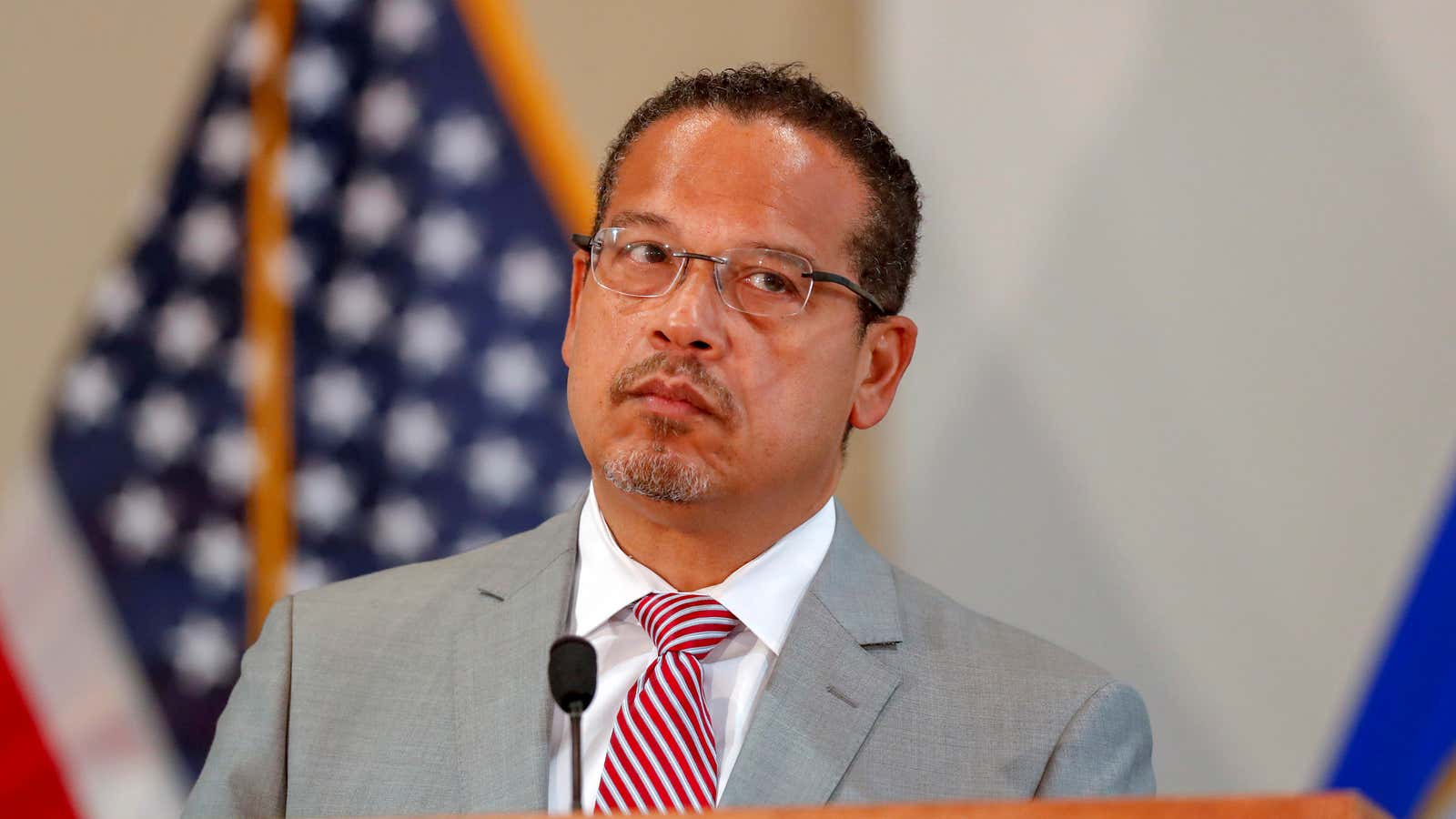Former Minneapolis police officer Derek Chauvin was found guilty on two counts of murder and one count of manslaughter in the killing of George Floyd last week, a relief for generations of Black Americans, who, like myself, had witnessed similar tragedies fall well short of any sort of just, equitable conclusion.
And yet, it seems that reaching the mountaintop has made visible a much larger mountain: turning verdicts like those reached in Chauvin’s case into a regular occurrence for cases of police officers who shoot and often kill Black Americans with impunity. Those who do are overwhelmingly shielded from legal action, and those who are tried rarely see jail time.
Since Rodney King was savagely beaten in the street by four Los Angeles police officers in 1991, there has been but a handful of convictions of a police officer accused of violence against a Black citizen. One happened just last week.
“Since the investigation and the prosecution of this case began last May, everyone involved has pursued one goal: justice,” said Minnesota’s attorney general and former congressman Keith Ellison in a press conference after Chauvin was led from court in handcuffs. “I would not call today’s verdict justice, however, because justice implies true restoration. It is accountability, which is the first step towards justice—and now the cause of justice is in your hands, and when I say ‘your hands’ I mean the people of the United States,” he added.
Ellison is sadly correct: Despite the verdict being a sensible conclusion to the killing of George Floyd, it does little to undo the pain felt by his family and community, and does even less for the families of slain Black Americans who met their ends before and since Chauvin’s trial began. Still, Ellison and his team, who he termed a crew of “Michael Jordans,” have left a blueprint for US prosecutors left to deal with their own abusive police, if and when tragedy strikes again, as it did during the lead up to the Chauvin verdict.
What future prosecutors should consider
Prosecutors looking to crib directly from Ellison’s notes should start with the makeup of his team and his role therein. “I’ve put together an exceptional team with experience and expertise across many disciplines. We are united in our responsibility to pursue justice in this case,” he said in the summer of 2020.
While responsible for leading team meetings and even line-editing legal footnotes, Ellison, the nation’s first Muslim congressman, who gave up a safe seat to run for state attorney general in 2018, confined himself largely to the background in the courtroom, handing the bulk of time in front of Chauvin’s jury to assistant attorney general Matthew Frank. Frank, a former public defender, has been quietly trying murders in far-flung spots around the state for quite some time.
“Use your common sense. Believe your eyes. What you saw, you saw,” prosecutor Steve Schleicher, who had left public service before being called back by Ellison, told jurors. Schleicher, a partner at Maslon’s Litigation Group in Minneapolis and seasoned criminal lawyer who joined the team on a pro bono basis, heads his group’s government and internal investigations group, which boasts an NFL stadium and a major car manufacturer amongst its clients. He also tried the murder trials of Jacob Wetterling’s killer, whose disappearance and death in 1989 led to the creation of state sex offender registries. Schleicher thanked Ellison for the privilege of stepping back into public service before yielding the podium to Jerry Blackwell, who won a posthumous pardon for a Black man whose wrongful rape conviction preceded the 1920 Duluth lynchings. Blackwell stated he hoped the verdict would “help us all along the road to a better humanity.”
Erin Eldridge, a former federal prosecutor who joined the attorney general’s office in 2018, questioned the youngest witnesses to take the stand. She “was particularly adept at showing empathy and kindness and a certain softness, which I think is really important when you’re questioning children,” according to Joseph Daly, emeritus professor at Mitchell Hamline School of Law in St. Paul.
Breaking down the blue wall
Ellison’s most crucial step, according to legal experts, was his breaking of the blue wall of silence, or police’s informal code of silence in the face of controversy, by calling officers to the stand to discredit Chauvin’s tactics and disavow his actions, one after another.
Chauvin’s 9 minutes and 29 seconds spent kneeling on Floyd were described as “totally unnecessary” by Minneapolis Police Department’s Lt. Richard Zimmerman, when questioned by Frank. “I saw no reason why the officers felt they were in danger.” Retired Sgt. David Pleoger, Chauvin’s shift supervisor, told prosecutors that officers should have eased up and provided medical care once they had Floyd restrained. Most surprisingly, Minneapolis police chief Medaria Arradondo told prosecutors in no uncertain terms that Chauvin had stepped beyond what he had been taught to do, calling his decision “in no way, shape, or form” indicative of his training.
Looking ahead
In the future, distance and, with any luck, scarcity, should make it more difficult for Ellison’s influence to be divined from the handiwork of any other prosecutors handling cases in which police officers are accused of murder or otherwise negligent behavior. Still, the US police force—one of the world’s deadliest—will no doubt be plagued by racism for generations to come, Ellison’s delegation, team-building, ability to share top billing, and strategy of attacking and discrediting police tactics and actions with the sworn testimony of active and retired police could prove a reliable foundation upon which to build a nation with more sane, equitable police practices and better community relations with those tasked with protecting and serving the population.
“The work of our generation is to put an end to the vestiges of Jim Crow and the centuries of trauma and finally put an end to racism,” Ellison said during his presser. “We can end it.”
“It’s in your hands—let’s get the work done,” he added.
